National Cheng Kung University (NCKU) advances sustainable development through a strategy of in-fill renewal and additions within the existing campus footprint.
The Biomedical Excellence Building of the College of Medicine, located within the medical cluster on the Cheng-Hsing Campus, is a new facility added to an already developed campus zone, strengthening research and teaching capacity.
In addition, the Dongning Student Dormitory is an on-site renewal project within the campus: it broke ground on December 25, 2020 and opened in 2025, expanding housing capacity on existing university land.
The “Small Pool” site was rebuilt in place as a multi-purpose sports complex (B1 + 5F) that includes a swimming pool, table tennis, badminton, and weight-training facilities, upgrading service capacity by renewing existing infrastructure.
The Daxinyuan New Construction Project, located at the campus core, repurposes the former NCKU kindergarten site into an Alumni Club and Student Arts Salon. While preserving existing trees, two glass volumes were introduced to provide welcoming public space for both campus and community.
Finally, to ensure governance quality on the institutional side, NCKU has adopted the Establishment Guidance of the Sustainable Campus Planning and Utilization Committee as the basis for organizational setup and decision-making.
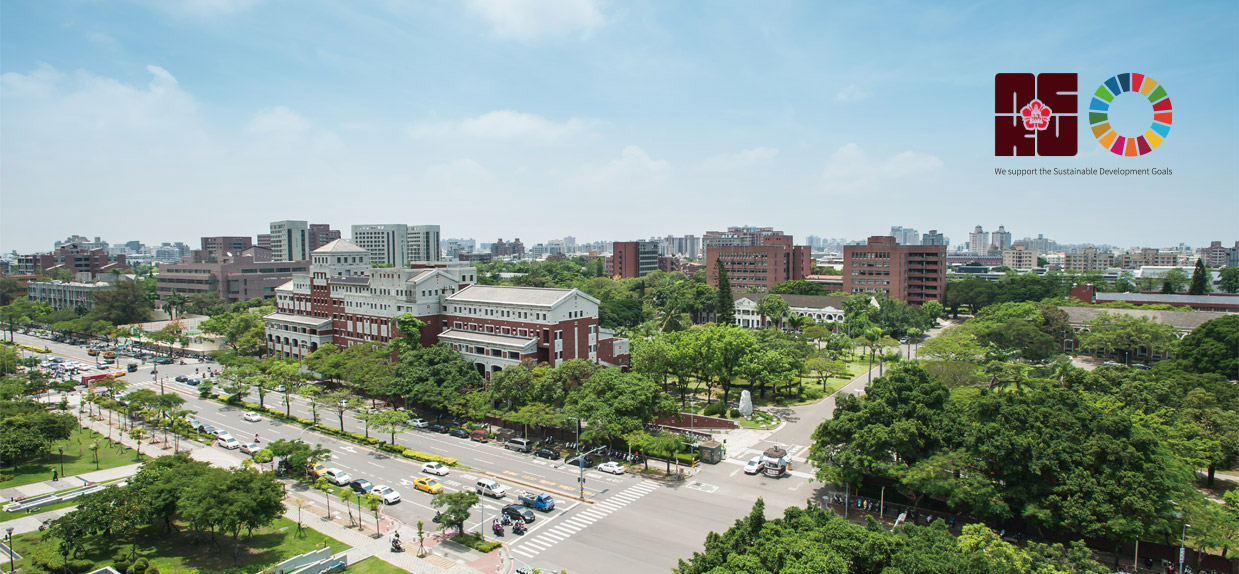
Building on brownfield sites
11.4.9
SDG11

Building on brownfield sites
- Biomedical Elite Building (New Structure within an Existing Campus Development Zone)
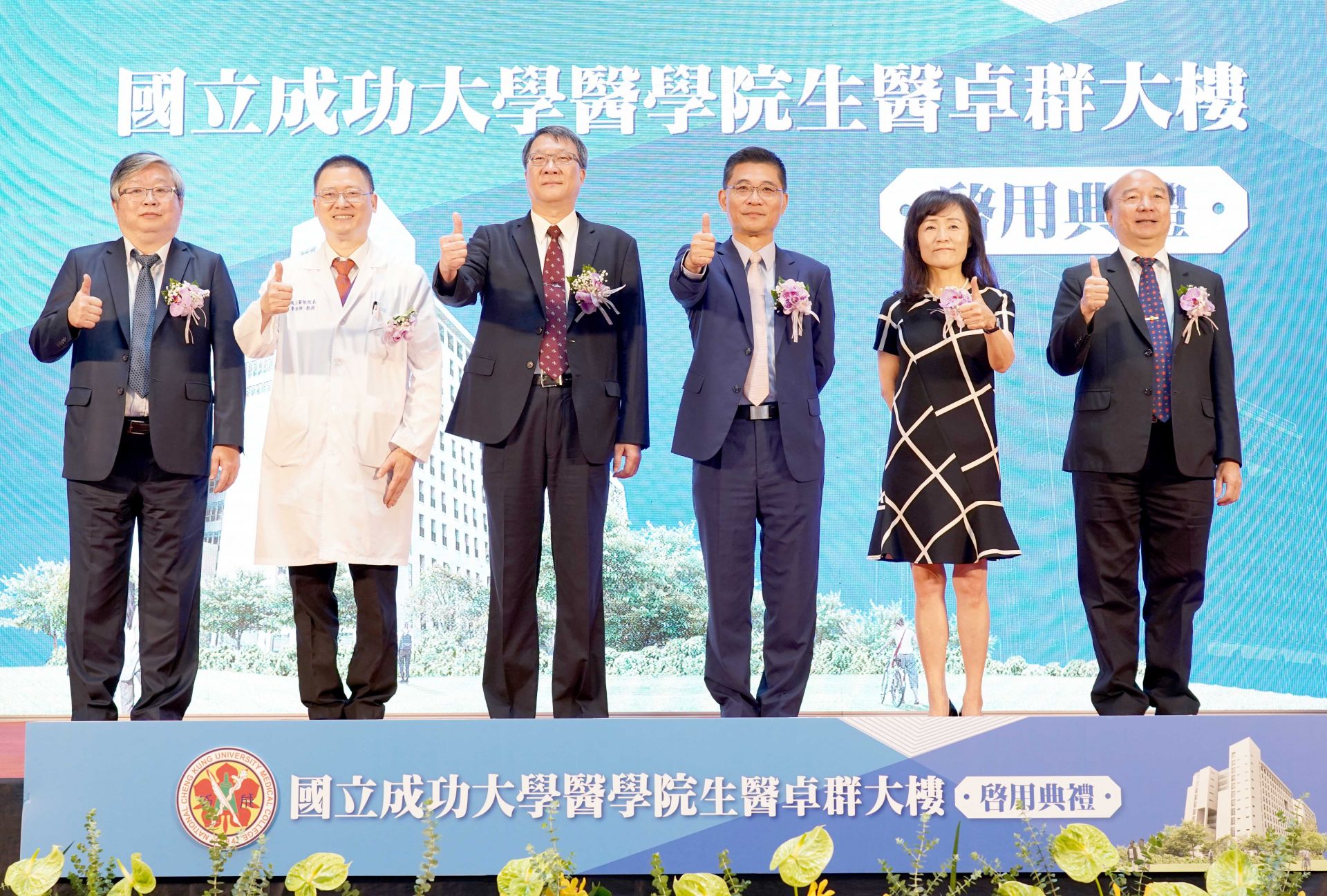 NCKU constructed the Biomedical Excellence Building on an already developed site within the campus, making it a new facility built on a brownfield site. The building provides advanced teaching and research space for the College of Medicine and related institutes, making full use of existing campus land resources rather than developing new greenfield areas. This reflects the university’s commitment to campus renewal and the sustainable use of land.
NCKU constructed the Biomedical Excellence Building on an already developed site within the campus, making it a new facility built on a brownfield site. The building provides advanced teaching and research space for the College of Medicine and related institutes, making full use of existing campus land resources rather than developing new greenfield areas. This reflects the university’s commitment to campus renewal and the sustainable use of land.- Dong-Ning Dormitory (Located on Previously Developed Campus Land — Classified as a Redevelopment Project within the Campus Area)
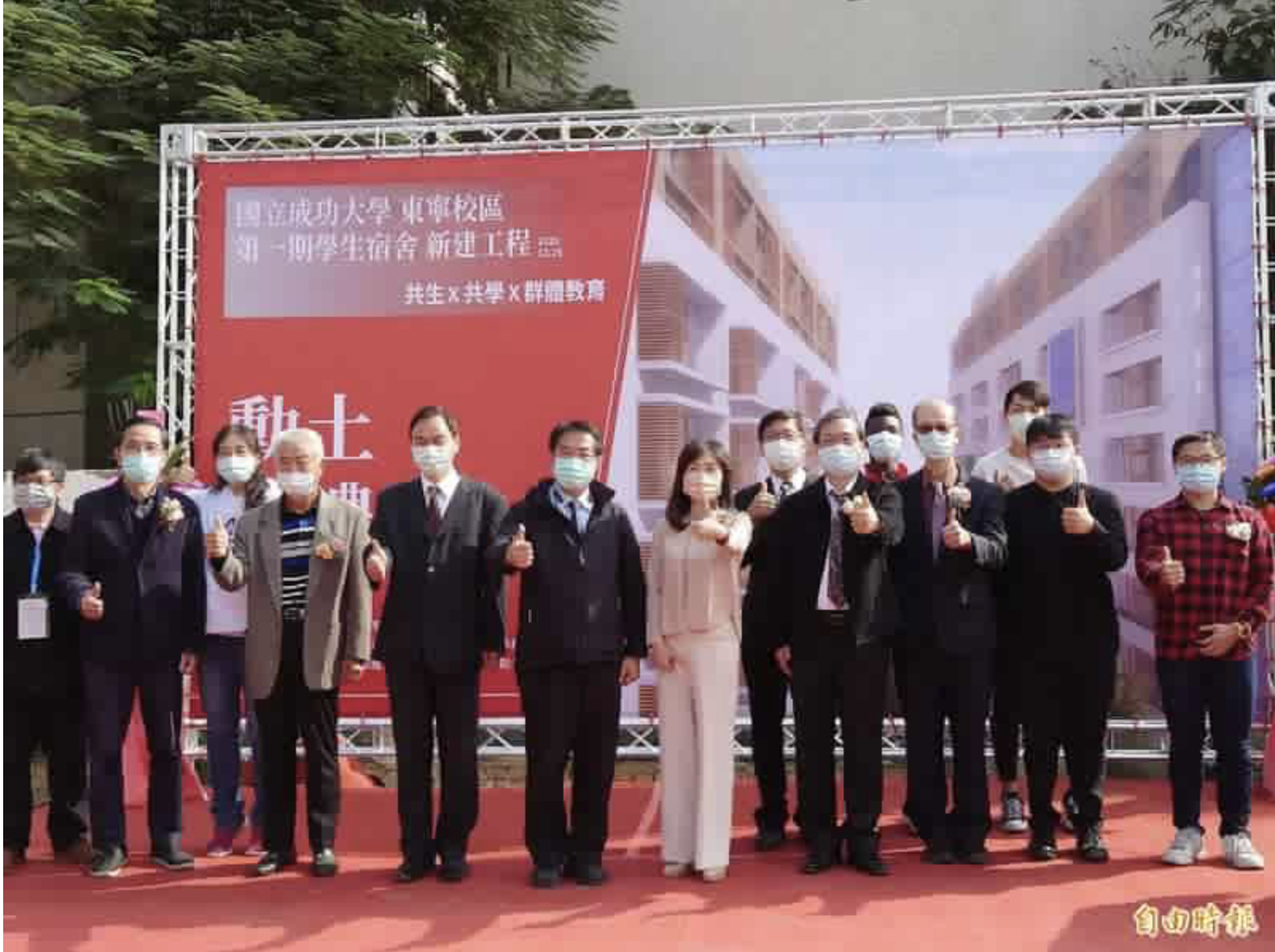 NCKU’s Dong-Ning Campus has launched the Dong-Ning Dormitory construction project on an already developed site, making it a renewal-type development within the campus. The primary goal of this project is to improve student housing conditions while making full use of existing campus land resources without occupying additional green space. This initiative embodies the concept of sustainable construction, achieving a “renewal through reuse” effect by redeveloping existing land, while balancing improved quality of student life with ecological preservation.
NCKU’s Dong-Ning Campus has launched the Dong-Ning Dormitory construction project on an already developed site, making it a renewal-type development within the campus. The primary goal of this project is to improve student housing conditions while making full use of existing campus land resources without occupying additional green space. This initiative embodies the concept of sustainable construction, achieving a “renewal through reuse” effect by redeveloping existing land, while balancing improved quality of student life with ecological preservation.- Reconstruction of the Former Small Swimming Pool Site into a Multi-Functional Sports Complex
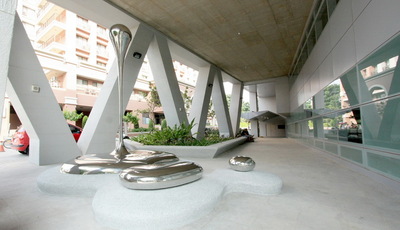 NCKU carried out an on-site reconstruction project at the location of its original small swimming pool. The first 25-meter pool, built in 1959, was demolished, and a new multi-purpose sports complex was constructed on the same brownfield site. The new building includes one basement level and five above-ground floors, equipped with facilities for swimming, table tennis, badminton, and weight training, and was officially put into use in 2024. This project represents a redevelopment case within existing campus land, effectively avoiding greenfield development while enhancing the efficiency of campus sports space utilization.
NCKU carried out an on-site reconstruction project at the location of its original small swimming pool. The first 25-meter pool, built in 1959, was demolished, and a new multi-purpose sports complex was constructed on the same brownfield site. The new building includes one basement level and five above-ground floors, equipped with facilities for swimming, table tennis, badminton, and weight training, and was officially put into use in 2024. This project represents a redevelopment case within existing campus land, effectively avoiding greenfield development while enhancing the efficiency of campus sports space utilization.- Daxinyuan New Construction Project
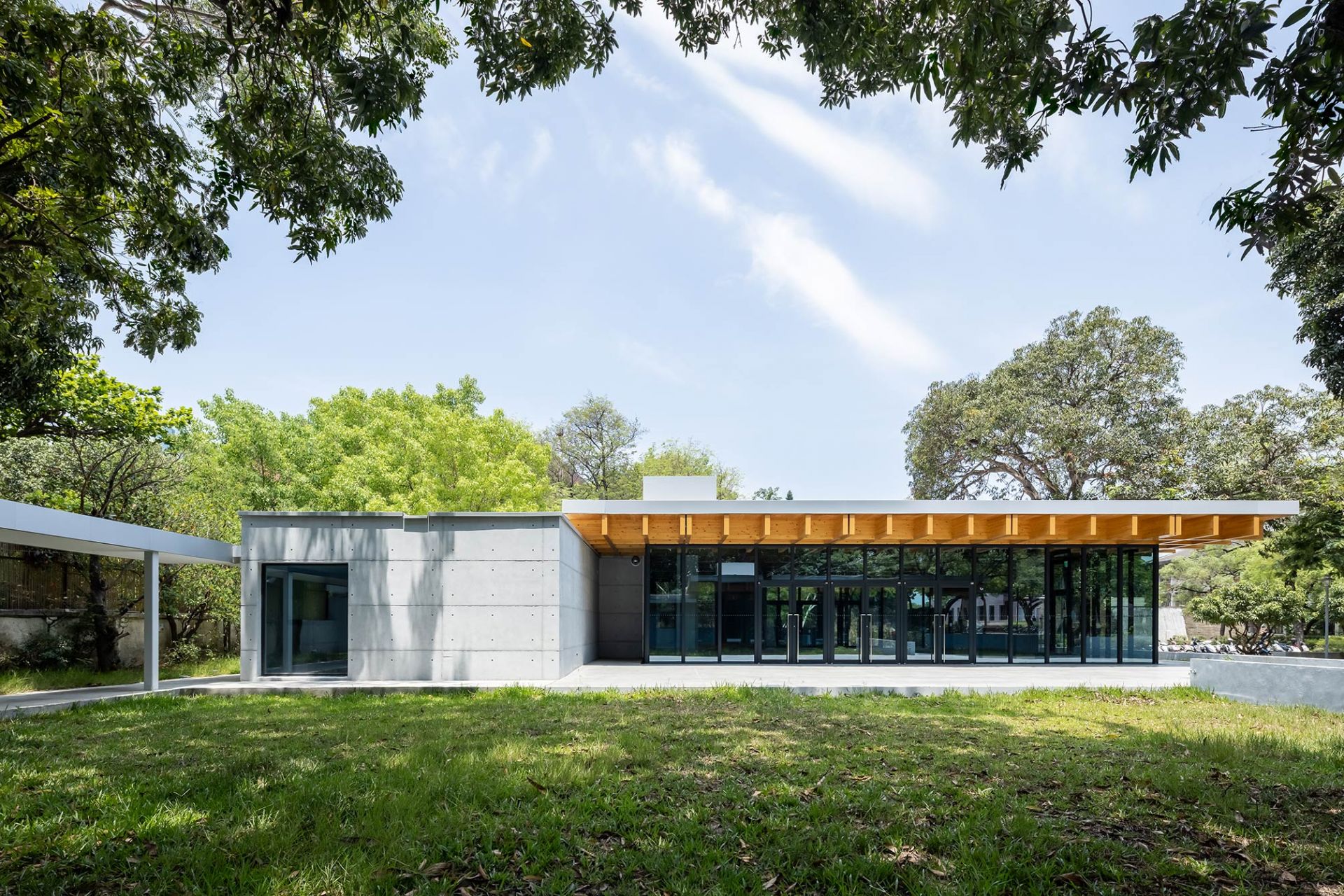 NCKU’s Daxinyuan New Construction Project was completed and inaugurated in 2024. The building is located within an already developed area of the campus, making it a case of brownfield site reuse. Designed with a minimalist and modern aesthetic, the structure features concrete and glass facades complemented by wooden structural details, creating a sustainable design that blends naturally with the environment. Without occupying additional green space, the project enhances the quality of campus public areas and provides new spaces for students and faculty to relax and interact.
NCKU’s Daxinyuan New Construction Project was completed and inaugurated in 2024. The building is located within an already developed area of the campus, making it a case of brownfield site reuse. Designed with a minimalist and modern aesthetic, the structure features concrete and glass facades complemented by wooden structural details, creating a sustainable design that blends naturally with the environment. Without occupying additional green space, the project enhances the quality of campus public areas and provides new spaces for students and faculty to relax and interact.- Regulations for the Establishment of the NCKU Sustainable Campus Planning and Utilization Committee
In 1996, 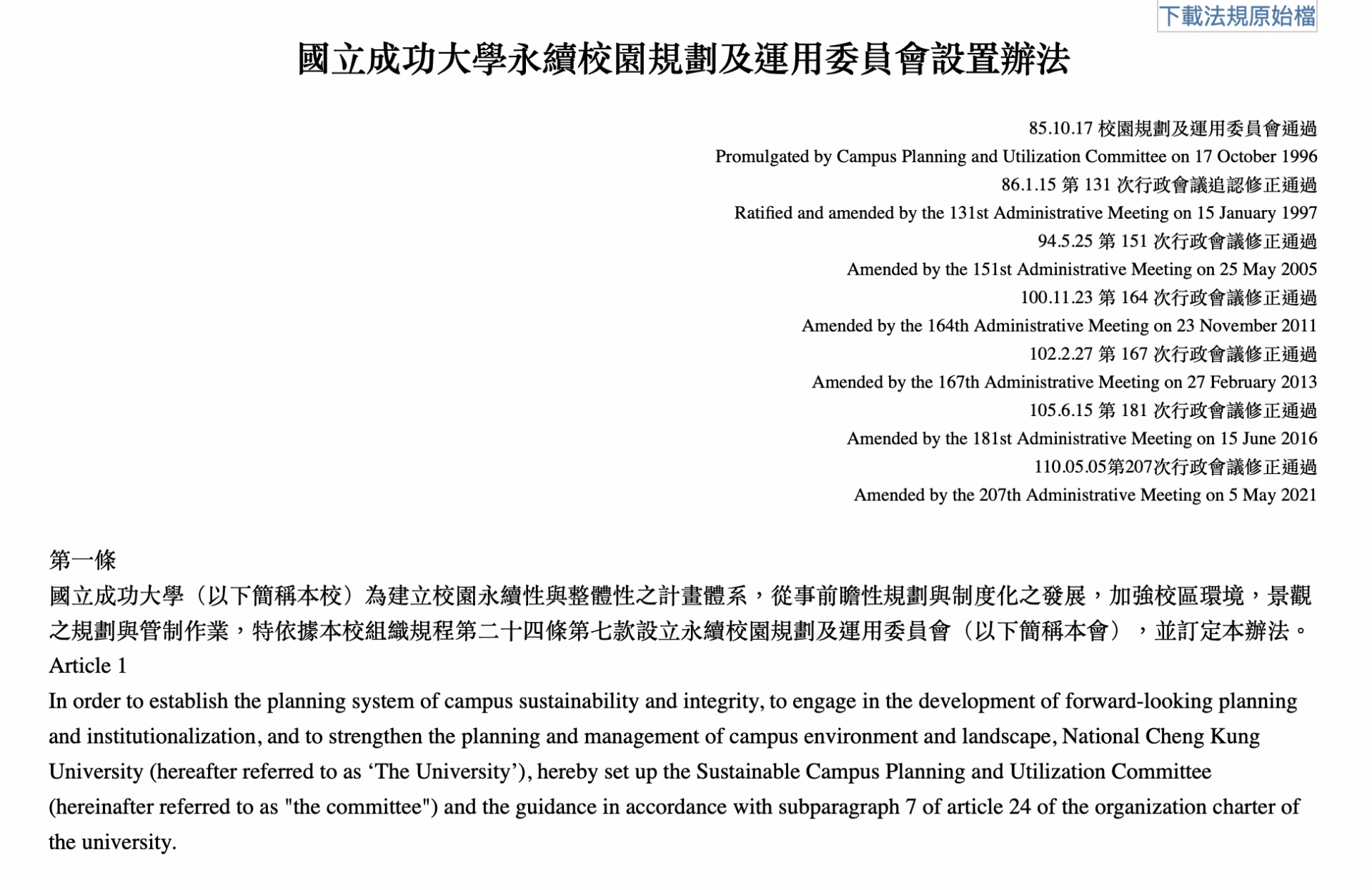 NCKU established the Sustainable Campus Planning and Utilization Committee, which has undergone several revisions up to 2021. The committee is responsible for forward-looking campus planning as well as environmental and landscape management, ensuring that campus land use aligns with principles of sustainability and holistic development. This demonstrates that NCKU not only adopts brownfield site reuse strategies in physical construction but also establishes long-term planning and management mechanisms at the governance level.
NCKU established the Sustainable Campus Planning and Utilization Committee, which has undergone several revisions up to 2021. The committee is responsible for forward-looking campus planning as well as environmental and landscape management, ensuring that campus land use aligns with principles of sustainability and holistic development. This demonstrates that NCKU not only adopts brownfield site reuse strategies in physical construction but also establishes long-term planning and management mechanisms at the governance level.
 NCKU established the Sustainable Campus Planning and Utilization Committee, which has undergone several revisions up to 2021. The committee is responsible for forward-looking campus planning as well as environmental and landscape management, ensuring that campus land use aligns with principles of sustainability and holistic development. This demonstrates that NCKU not only adopts brownfield site reuse strategies in physical construction but also establishes long-term planning and management mechanisms at the governance level.
NCKU established the Sustainable Campus Planning and Utilization Committee, which has undergone several revisions up to 2021. The committee is responsible for forward-looking campus planning as well as environmental and landscape management, ensuring that campus land use aligns with principles of sustainability and holistic development. This demonstrates that NCKU not only adopts brownfield site reuse strategies in physical construction but also establishes long-term planning and management mechanisms at the governance level.